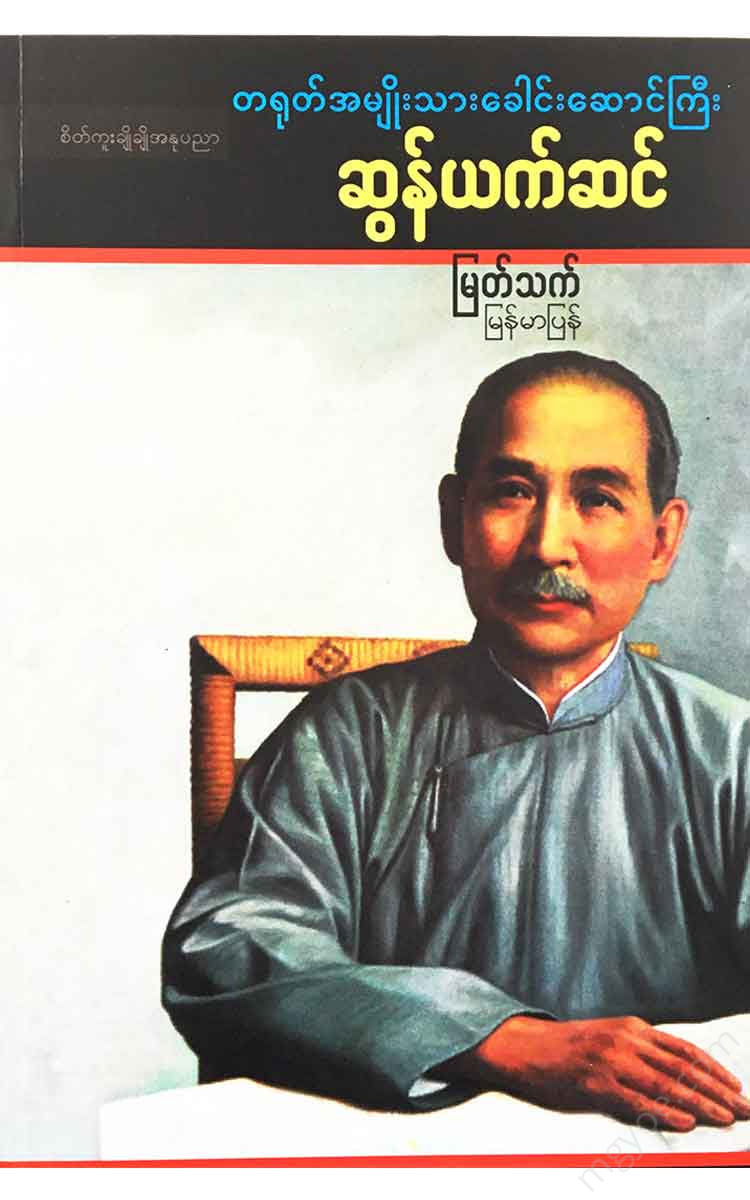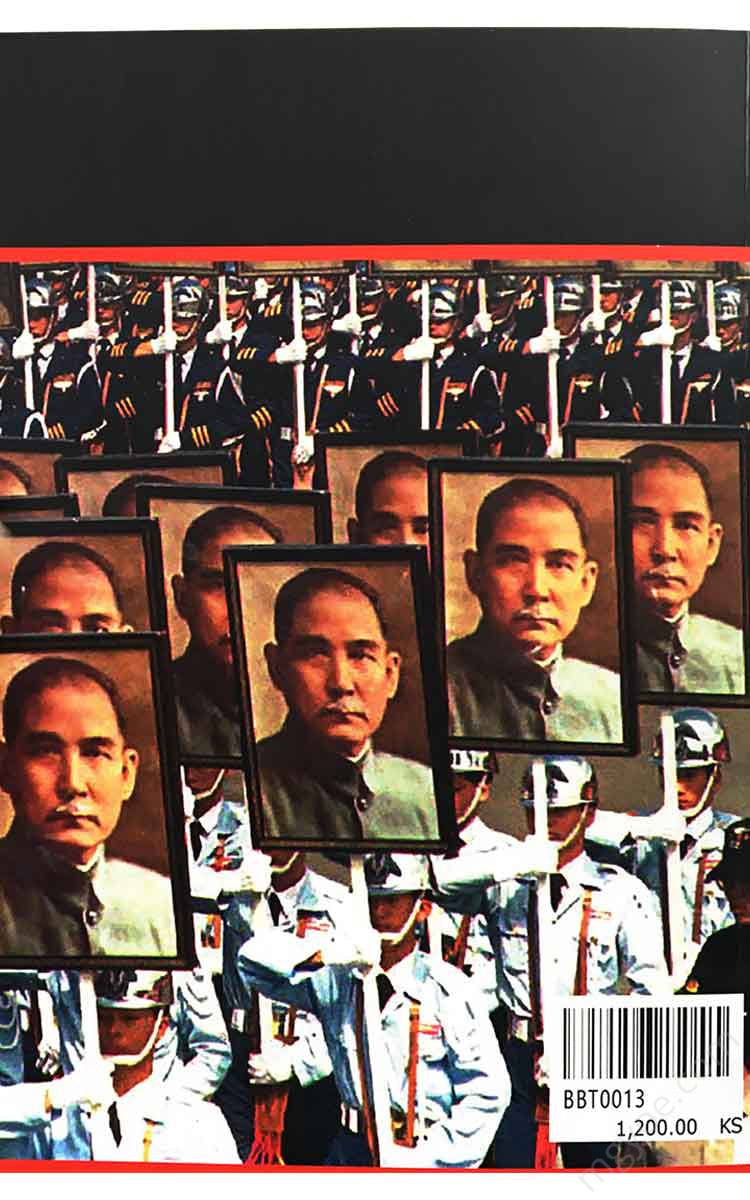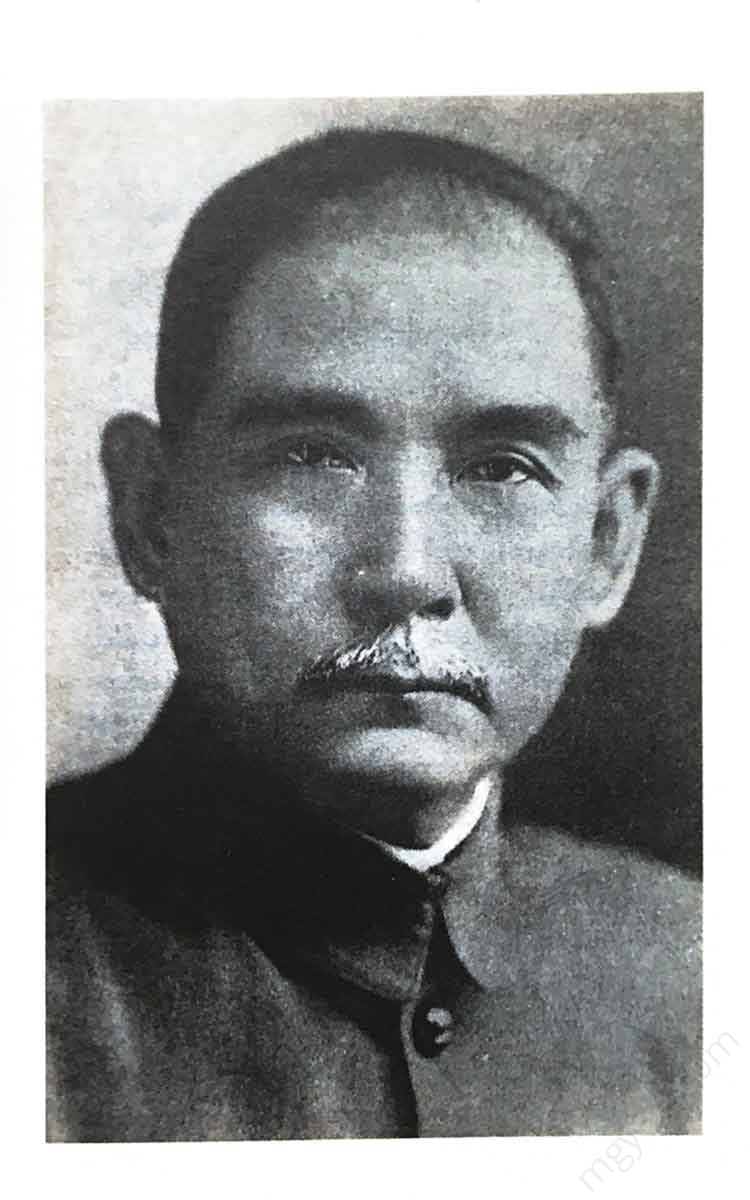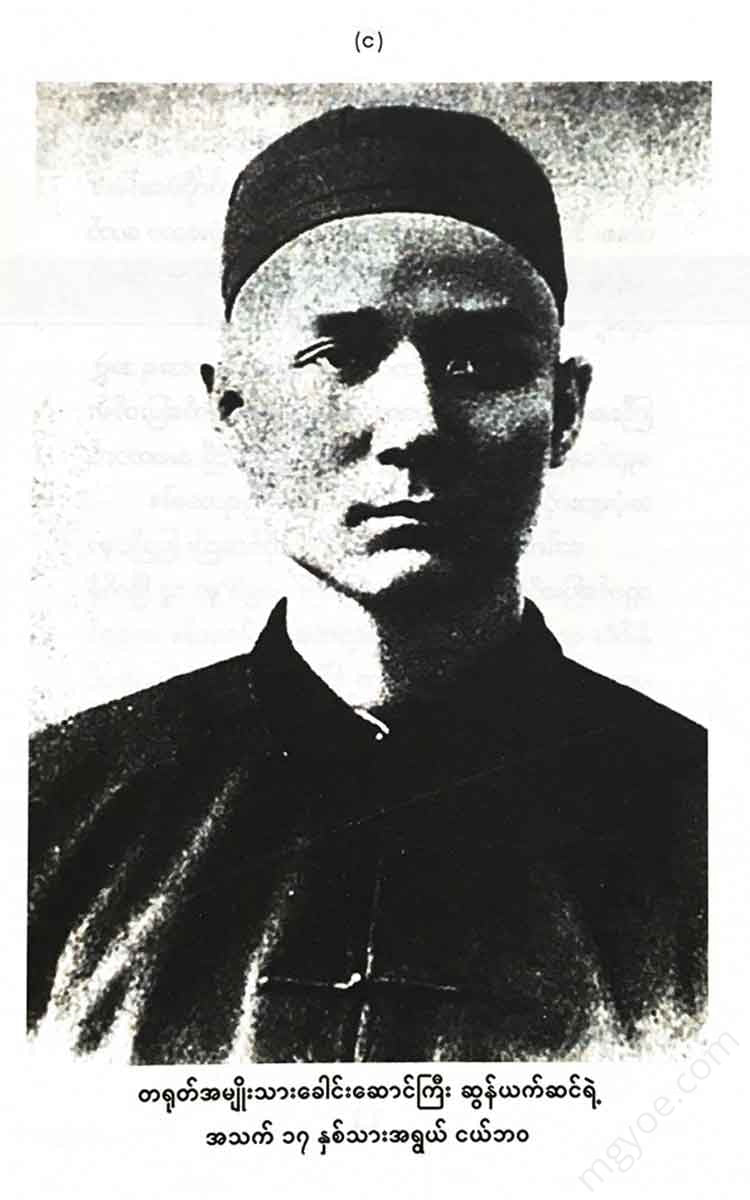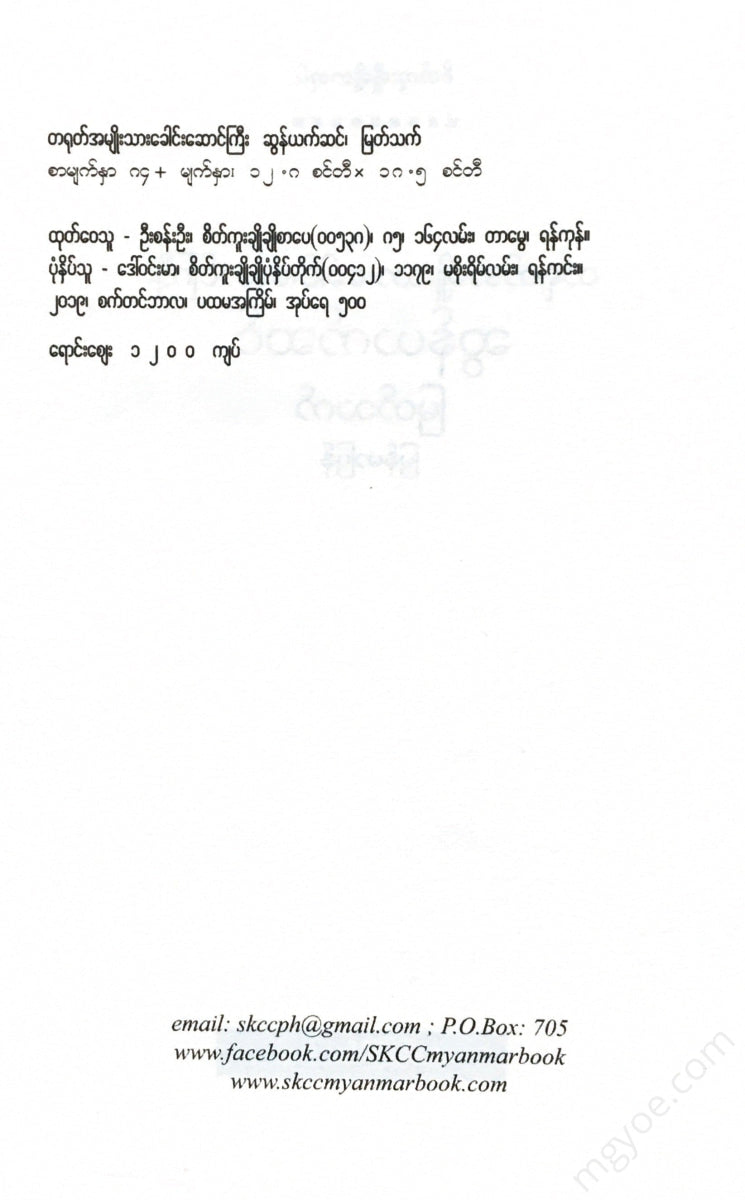စိတ်ကူးချိုချိုစာပေ
Myat Thet - Chinese national leader Sun Yat-sen
Myat Thet - Chinese national leader Sun Yat-sen
Couldn't load pickup availability
The great Chinese nationalist and revolutionary Sun Yat-sen was born on November 12, 1866, into a poor peasant family. He was born in Suhong Village, Guangdong Province. However, one of the things that made Sun Yat-sen’s education so successful was the support of his older brother, who had moved to Hawaii. With his older brother’s support, Sun Yat-sen studied in Honolulu and graduated with a medical degree from Hong Kong College.
At the time Sun Yat-sen was born and educated, in the late 19th century, China was a backward, semi-colonial, semi-feudal country. As such, the country was ruled by the foreign Manchu Qing Dynasty (1644-1911).
The greedy Manchu-Chinese landowners and government officials, who are fighting with the ghost of the old man, are oppressing, exploiting, and sucking the blood of the Chinese people in various ways.
It was also a time when imperialist powers (Britain, France, etc.) were oppressing China with various harsh and unjust treaties. In other words, it was a time when the Chinese people were suffering under the rule of domestic and foreign dictators, landlords, and capitalists.
If we ask whether the Chinese people were willing to submit to such oppression and bloodshed, the answer is no. The Chinese people often revolted against the Manchu rulers and their accomplices.
In this situation, a young doctor (Dr. Sun Yat-sen) fearlessly participated in the forefront of the struggle for the liberation of the Fatherland.
The Union for the Regeneration of China was founded in 1894, and it was the first revolutionary organization in China. The English name of this organization is (Union For the Regeneration of China) in some books, and in some books it is called 'Save China League'. Whatever you call it, this organization is the first revolutionary organization in China and aims at the welfare of the entire Chinese people.
At that time, given the circumstances of that period, the group had to rely more heavily on the help and support of Chinese refugees abroad than domestically.
Dr. Sun Yat-sen himself was in hiding abroad, and in 1896 he was in London, England. Dr. Sun Yat-sen, who was leading the movement to overthrow the Chinese feudal system, was constantly being watched by the Manchu emperor's spies, so the emperor's circle was well aware of his presence in London.
As you know, one day, officials from the Chinese Consulate in London arrested and kidnapped him.
After the authorities learned of the plot to overthrow the Manchu emperor, Sun Yat-sen fled to London, Britain. However, the Chinese authorities soon learned of Sun Yat-sen's escape to London, and informed the Chinese Consulate in London. The imperial palace also ordered the Chinese Embassy in London to arrest Sun Yat-sen "on the spot" and return him to China.
Chinese embassy staff in London made repeated attempts to kidnap Sun Yat-sen, acting on the Emperor's orders.
On a Saturday in October 1896, Chinese diplomats successfully tracked down Sun Yat-sen and kidnapped him. The kidnappers took him to the Chinese embassy at 49 Portland Street, London.
On Monday, two days after Sun Yat-sen was kidnapped, a Chinese diplomat visited him and informed him that he would be returned to China, tried under Chinese customary law, and beheaded if found guilty.
Sun Yat-sen was to be transported to Canton on a Glen Line cargo ship, where the Chinese authorities planned to execute him. He had a few days before being sent back to Canton, and during those days, Sun approached the British servants who cleaned his room and brought him food, asking for his release.
Earlier, Sun Yat-sen had thrown pieces of paper from the Chinese embassy where he was being held, asking for help. He had written on the pieces of paper that he had written to come and rescue him and thrown them onto the street below.
But unfortunately, the scraps of paper he threw were not found by anyone who would have saved them, and were found by an embassy guard, so the window of Sun Yat-sen's cell was boarded up. Sun Yat-sen had no choice but to approach the British servants who cleaned and brought him food and asked for help.
The person he approached for help was a British man named Edward Cole. Cole seemed like a good person, so Sun Yat-sen decided to approach him and ask for help.
Having made up his mind, Sun Yat-sen asked Cole to help him send a letter to his friend Dr. Kentley in London. Dr. Kentley was Sun Yat-sen's teacher when he was studying at the Chinese Medical Academy and was currently living in London. When he went to see Dr. Kentley after he had fled to London, the doctor had warned him to stay away from the Chinese embassy.
But fate turned against him and he was arrested by the Chinese embassy, even though his teacher was warning him.
The letter he wrote to Cole asked Dr. Kentley to save him by any means necessary, and the British embassy employee was only able to deliver the letter to the doctor two days later, on his day off.
When Dr. Kentley received Sun Yat-sen's letter, he was "like a snake with a head on its head" and immediately went to Scotland Yard, the world-famous British detective agency, to ask for help. But the detective agency was not very confident.
Cole had told him that Sun Yat-sen would be shipped on Tuesday, so the doctor was furious and had to run from Scotland Yard to the British Foreign Office. However, Cole was able to get the letter from Sun Yat-sen to Dr. Kentley on Sunday, which was a holiday, so the Foreign Office officials pulled the plug on the system, saying that they could not do anything because it was a holiday and that they would report it to their superiors on Monday.
Dr. Kentley, whose head was burning, spent Sunday asking for help from freelancers, Scotland Yard officials, and police stations, but to no avail.
So, on the day of the opening of the Tanintharyi office, they ran to the Foreign Office and again asked for help explaining that Sun Yat-sen was being kidnapped. In the meantime, they hired private detectives to watch the embassy day and night to prevent the Chinese authorities from sneaking Sun Yat-sen out of the embassy. The detectives were also asked to watch not only the embassy but also the ships leaving for China.
The doctor's efforts finally paid off. The Foreign Office asked Scotland Yard detectives to investigate whether the Chinese embassy had chartered a ship from a shipping line.
Scotland Yard's investigation revealed that the Chinese embassy had chartered a cargo ship from Glen Line to transport goods to China, and that the ship was carrying a passenger.
But Sun Yat-sen was again having trouble getting out of the embassy. Dr. Kentley broke the news to a newspaper. As the newspapers wrote about it, a wave of discontent spread throughout London. The British Foreign Office then asked the Chinese embassy to release Sun Yat-sen.
Chinese diplomats, unable to comply with the Foreign Office's demands, were forced to release Sun Yat-sen.
